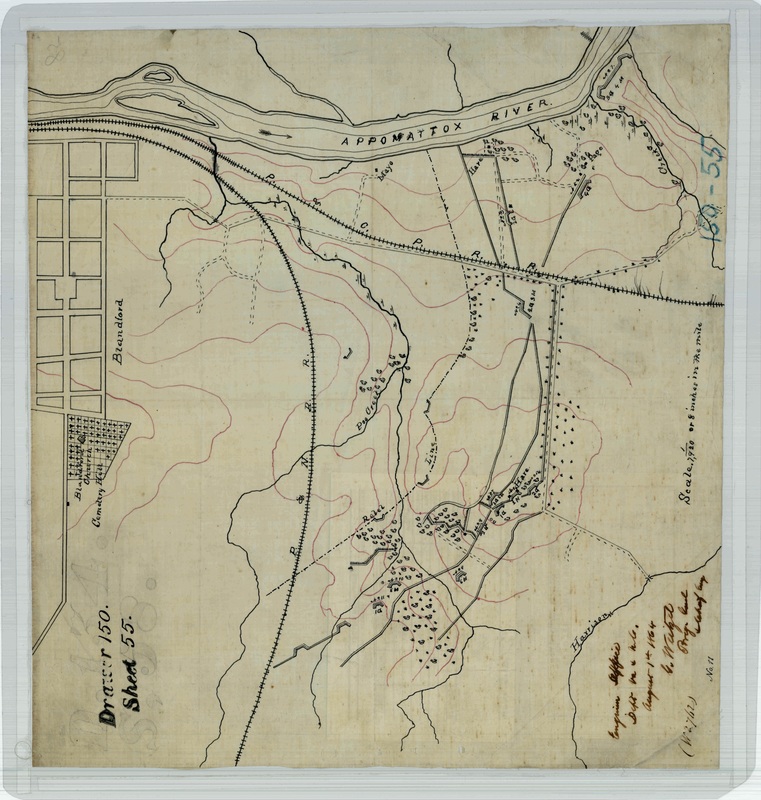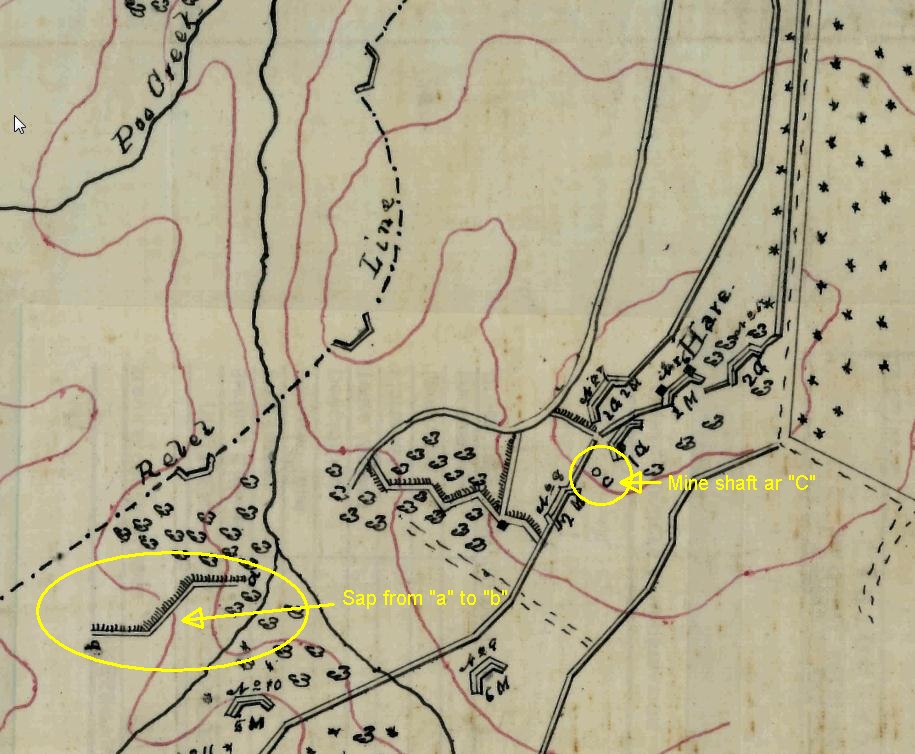XVIII Corps Lines, July 1864Captain Farquhar reports the engineering operations of the Eighteenth Army Corps for the month of July as follows, viz:
"I have the honor to submit the following report of engineering operations of the Eighteenth Army Corps for the month of July, 1864, together with a tracing of the line of intrenchments occupied by it. I was assisted by a battalion of the First New York Volunteer Engineers under the command of Major Graef, and by First Lieut. C.B. Philips, U.S. Engineers, who reported for duty July 9: From the 1st to the 10th of the month nothing was done save the strengthening of our position by means of abatis. On the 10th I received a leave of absence of ten days. During my absence, Battery No. 5 (see accompanying tracing), for two 20-pounders; Battery No. 9, for two 8 inch mortars; and Battery No. 10, for one Napoleon gun, were constructed under the direction of Lieutenant Philips. The sap a b was also commenced for the gaining of a better position for sharpshooters, and should the position near the railroad prove favorable for a battery, the mortar batteries were to keep by their fire the enemy from massing his troops in the low ground in front of our left, and to annoy his working parties. The Napoleon gun was to sweep the head of the sap. It being reported by officers that the enemy was mining our line between Batteries Nos. 4 and 5, a shaft was sunk on the 23d, but the nature of the soil and the proximity of water presented so many difficulties to mining that no galleries were run. A shaft was sunk at C, near Battery No. 8, and a listening gallery commenced on the 25th, running in front of Batteries Nos. 6 and 7. The shaft was sunk twelve feet deep; the soil was a sticky clay, containing a great deal of water, so by the 30th the gallery was only about forty feet long. During the night of the 26th Battery No. 8 was commenced and Battery No. 9 was enlarged to make room for two Coehorn mortars. This increase in mortars was necessary to keep down the mortar fire of the enemy concentrated on the batteries near the Hare House. These batteries were all half sunken. Before closing I will testify to the hearty co-operation of Major Graef and his command." OR XL, Part I, 680 |



